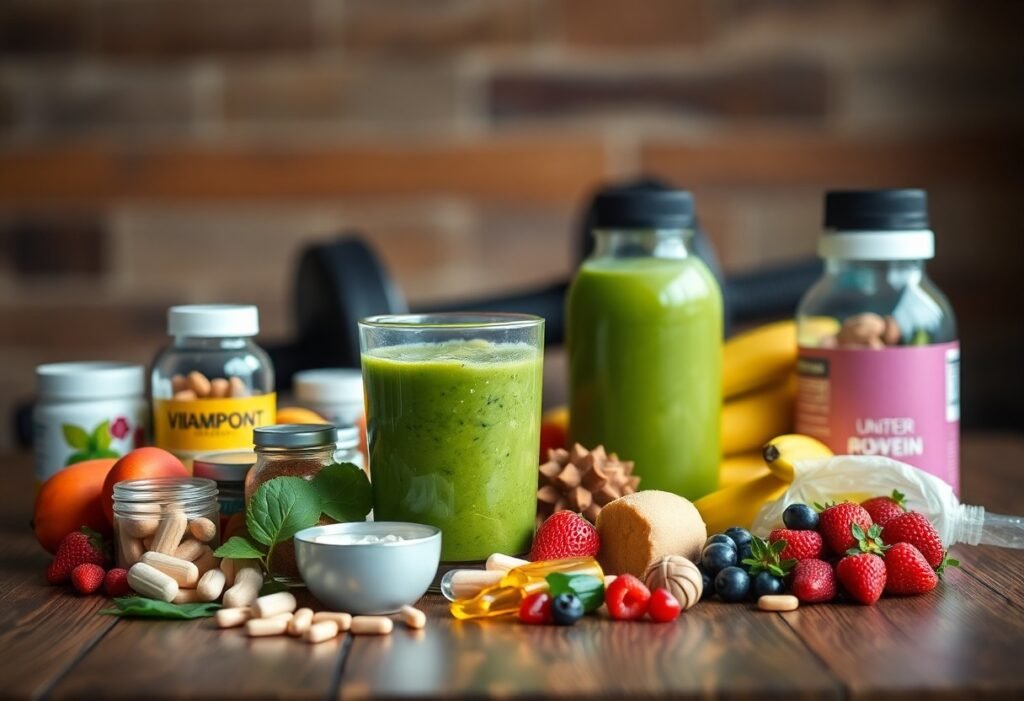
There’s a powerful connection between vitamins and your body’s ability to build and repair muscles. If you’re aiming to enhance muscle growth and recovery, integrating the right vitamins into your routine can make a significant difference. Here’s how you can do that effectively.
First, focus on Vitamin D. This vitamin plays an vital role in muscle function. When you get ample Vitamin D—either from sunlight exposure, fortified foods, or supplements—you can improve your muscle strength and overall performance. Aim for a minimum of 600-800 IU daily, which can help support muscle recovery and growth by promoting calcium absorption, crucial for muscle contraction.
Next, incorporate Vitamin C into your diet. This vitamin is well-known for its antioxidant properties, aiding in the reduction of oxidative stress caused by intense workouts. This stress can hinder muscle recovery. Foods rich in Vitamin C, such as citrus fruits, strawberries, and green leafy vegetables, help repair tissues and may enhance the synthesis of collagen—an important protein for muscle and connective tissue health.
Another vitamin you should prioritize is Vitamin E. It works in tandem with Vitamin C as an antioxidant, helping to neutralize free radicals that can damage muscle cells during exercise. Consuming nuts, seeds, and green vegetables can increase your Vitamin E intake, which in turn supports endurance and recovery.
Don’t overlook the B vitamins, especially B6, B12, and folate. These vitamins contribute to energy metabolism, which is vital for muscle performance. They also help in creating red blood cells, which transport oxygen to your muscles and can improve workout performance. You can find B vitamins in a variety of foods, including whole grains, lean meats, eggs, and leafy greens. Incorporate these foods into your meals for optimal muscle support.
Magnesium is another key player in muscle growth and recovery, although it’s technically a mineral, it shares an important role with vitamins. It helps with muscle relaxation and recovery after workouts. Include magnesium-rich foods such as nuts, seeds, and dark chocolate in your diet. Some people find that magnesium supplements work well, especially after rigorous exercise.
Lastly, consider Vitamin A. This vitamin supports immune function and cellular health, which is necessary for overall muscle recovery. You can obtain Vitamin A from foods like carrots, sweet potatoes, and fish. This will aid in speeding up muscle recovery following intense workouts and help maintain a healthy immune system.
For the best results, combine these vitamins with a balanced diet and a solid workout routine. Pay attention to your body’s responses and adjust your vitamin intake as needed. Consulting with a healthcare professional before starting any new supplementation is always a wise choice. By prioritizing these vitamins, you’ll enhance not only muscle growth and recovery, but also your overall fitness journey.
